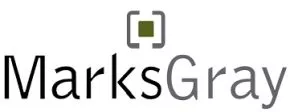- within Immigration topic(s)
- in United States
- within Immigration, Technology and Intellectual Property topic(s)
- with readers working within the Retail & Leisure industries
Dear Clients and Friends,
From the mountains at 7,200 feet, I wish I could say I was only hiking — but immigration policy seems to climb right alongside me. 🌼⛰️✈️
On Friday evening, without notice or agency guidance, the Administration announced a dramatic change to the H-1B program: effective September 21, 2025, employers must pay a $100,000 "entry fee" for each new H-1B petition.
A note on uncertainty (and sanity)
This is an evolving situation. Many operational details are still missing, and even government agencies don't yet have answers. We'll continue monitoring and share concrete steps as soon as they exist. For now, here's what we know.
What we know (so far)
- H-1B only. Other visas (L-1, O-1, TN, E-3, etc.) are not included.
- $100,000 tied to entry. H-1B entries after 12:01 a.m. EDT on Sept. 21 require a petition accompanied or supplemented by a $100K payment, verified by DOS/CBP/USCIS.
- Duration: Initially 12 months (extendable).
- National Interest Exceptions (NIEs): DHS may grant waivers for entries serving the U.S. national interest (critical infrastructure, public interest, economic impact). No process has been published yet.
- Implementation pending: Agencies have not explained how or where to pay, what proof is required, or how NIEs will be requested.
- FY2027 cap impact: New, cap-subject filings for the March 2026 lottery may be affected.
If the employee is in the U.S. now
Extensions with the same employer (including amendments):
- Can continue to be filed and adjudicated in-country under current rules.
- No $100K is triggered unless the employee leaves the U.S. and re-enters after Sept. 21.
- Tip: File timely and avoid international travel until we get formal guidance.
Change of employer ("transfer") filed from inside the U.S.:
- Can proceed under portability and be adjudicated in-country.
- No $100K is triggered unless the employee travels and re-enters after Sept. 21.
- If consular processing is chosen—or the worker is abroad—assume $100K applies unless an NIE is granted.
Pending change of status to H-1B (e.g., F-1 cap-gap):
- If approved and the worker does not depart, no entry is required and no $100K is triggered.
- Do not travel while COS is pending; departure could force consular processing and the $100K fee at re-entry.
Pending consular cases / employees abroad:
- Arrivals after Sept. 21 will likely be disrupted unless the $100K is paid or an NIE is granted.
- Case-by-case analysis will be needed; contingency planning is essential.
Immediate Employer Checklist
- Identify now:
-
- H-1B employees outside the U.S.
- H-1B employees with international travel in the next 90 days
- Cap H-1B Oct. 1 (or later) starts who are outside the U.S.
- Instruct H-1Bs in the U.S. to avoid international travel.
- Proceed with in-country extensions/transfers while avoiding travel.
- Document business impact (roles, projects, costs) to support potential NIE requests.
Why is this happening?
The Administration says this move curbs "abuses" and protects U.S. workers. Many in the legal, business, and policy community see it differently: an unfair—and possibly unlawful—barrier that imposes extraordinary costs on employers without solving real workforce needs. The Immigration and Nationality Act gives Congress—not the Executive—the authority to set visa categories and fees, so legal challenges are expected.
Our perspective
We recognize how disruptive and frustrating this is for employers and their foreign employees. This fee does not solve workforce shortages—it only makes it harder for businesses to recruit and retain the talent they need. That's why we expect strong pushback and legal challenges and encourage you to stay engaged and advocate.
Advocate for sensible policy
If this harms your projects, teams, or customers, let policymakers know—briefly and specifically:
- Your company/location/industry
- Roles affected and why U.S. recruitment alone isn't sufficient
- Economic/operational impacts (delays, costs, lost revenue, customers served)
- Ask for:
-
- A pause on the $100K fee
- Clear NIE criteria and process
- Protection for in-country extensions/transfers and travel already in motion
- Business- and people-centered immigration policies
This is not likely to be the final disruptive action. The Administration has signaled further "reforms" in the coming months.
We are here to help you assess the impact on your company, reassure your foreign national employees, and adapt your workforce strategy.
Thank you for your engagement and resilience in navigating these unprecedented changes.
From the mountains with hope,
Giselle
Originally published Sep 23, 2025
The content of this article is intended to provide a general guide to the subject matter. Specialist advice should be sought about your specific circumstances.


